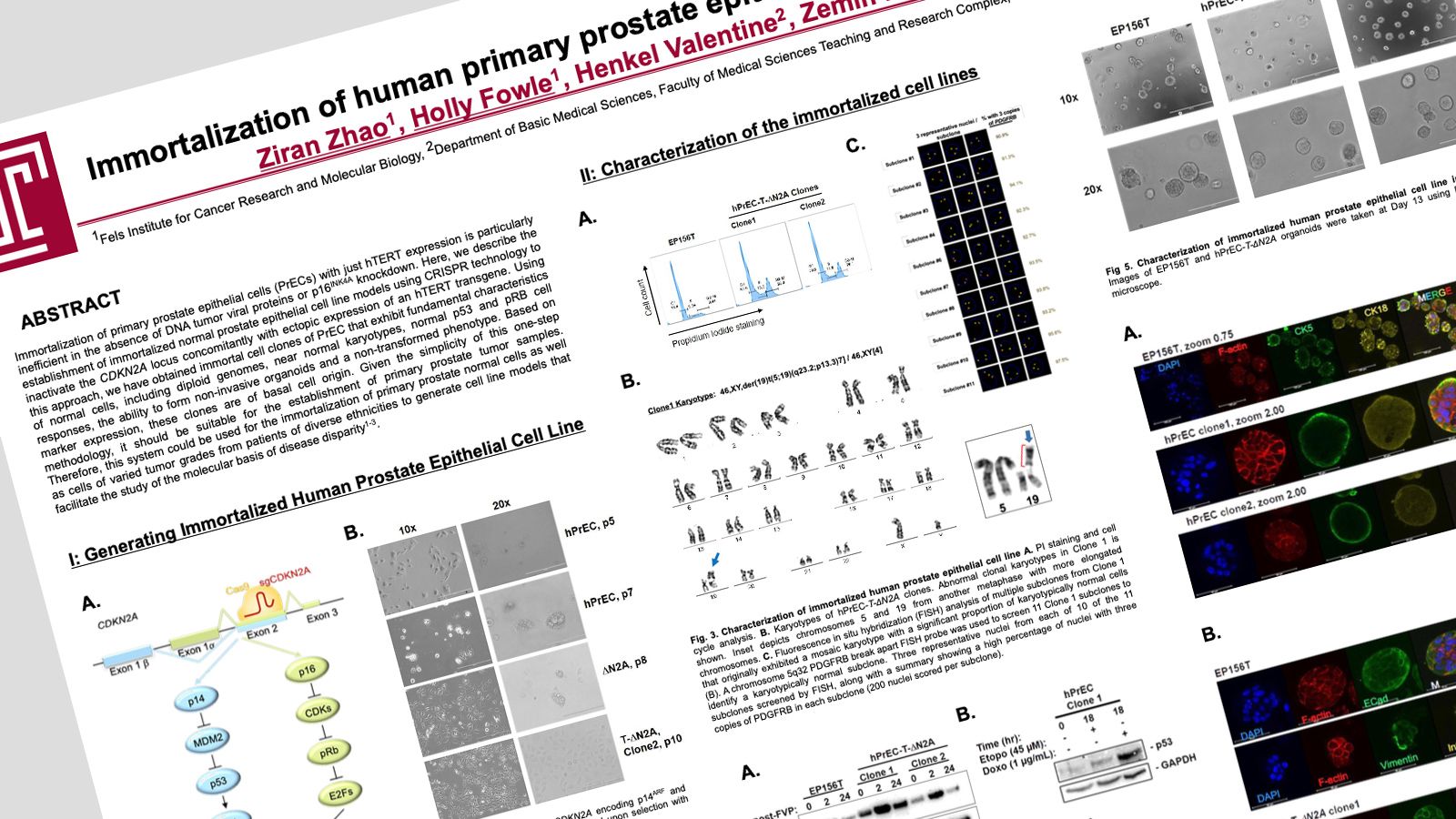
Immortalization of Human Primary Prostate Epithelial Cells via Inactivation of the CDKN2A Locus and Expression of Telomerase
| Name | Holly Fowle |
| Institution | Temple University |
| Research Field | Basic Cancer Research |
| Role at Institution | Graduate Student |
| Presenter(s) | Holly Fowle and Ziran Zhao |
